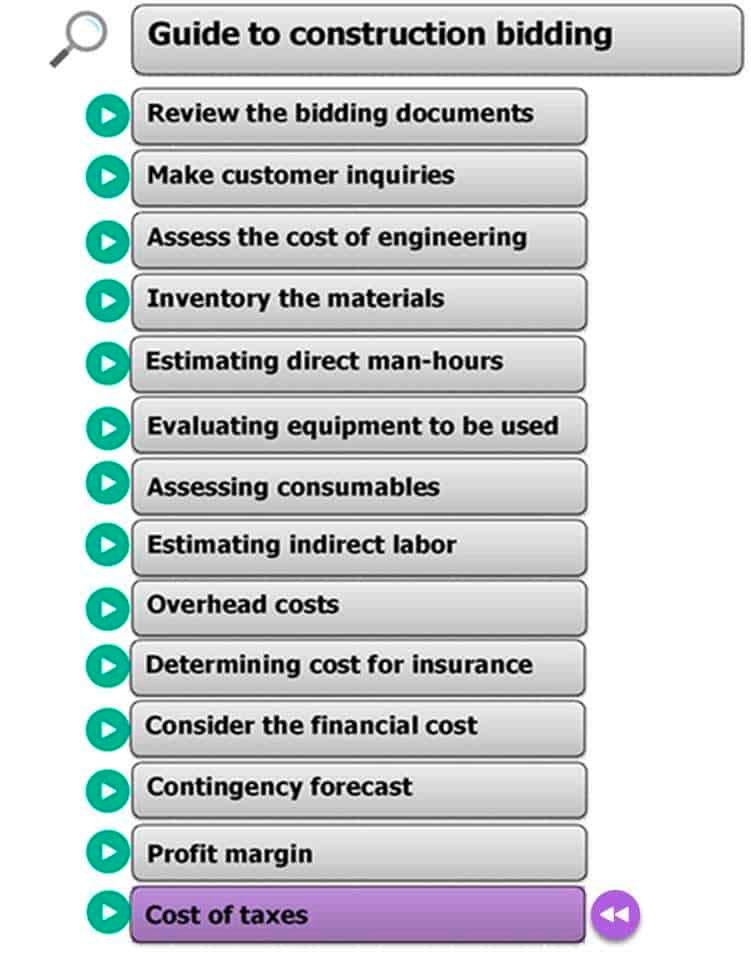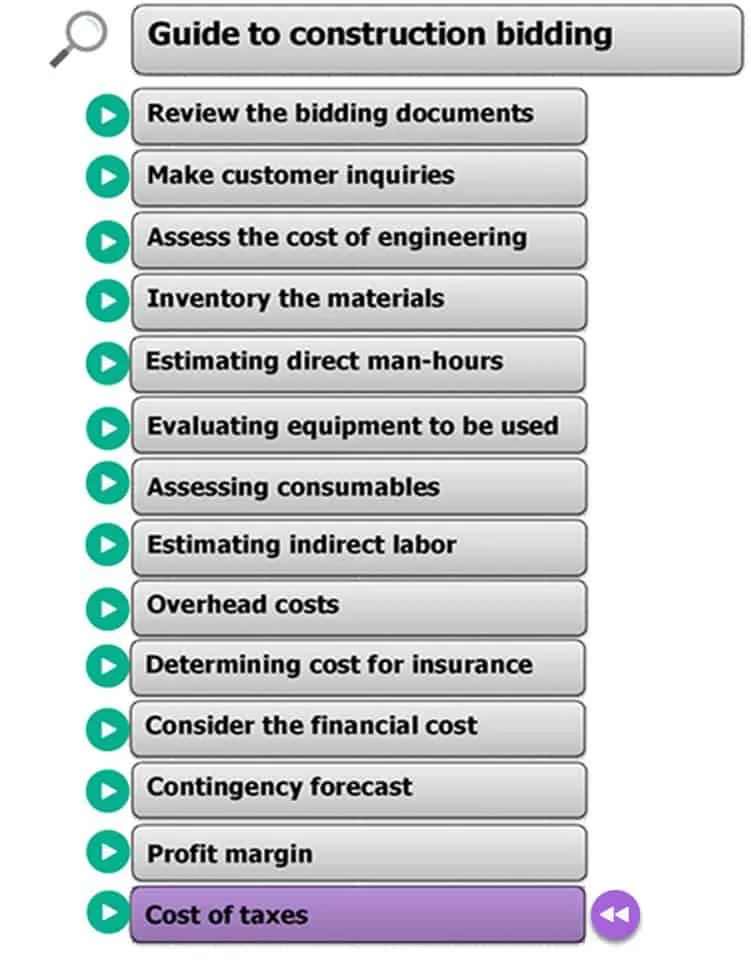
Tax for Construction Contractors. When preparing a proposal, it is important to consider the tax burdens that affect the finances of the project.
In this publication, we will give an overview of the types of taxes applicable to the construction sector.
The tax obligations for construction contractors can vary depending on several factors, including the contractor’s legal structure (sole proprietorship, partnership, limited liability company, or corporation) and the country or region in which they operate.
Cost per tax is the last step to be completed to successfully determine the bid price.
In the following figure, we highlight the item cost because of taxes.

What is a Tax?
A tax is a compulsory financial charge or levy imposed by a government on individuals, businesses, or other entities to fund public expenditures and government programs.
Taxes are a primary source of revenue for governments at various levels (local, regional, national) and are used to finance public services such as infrastructure development, healthcare, education, defense, social welfare programs, and more.
Taxes are typically enforced through legislation and collected by tax authorities or government agencies responsible for revenue collection. The specific tax laws and regulations can vary from country to country, and even within different jurisdictions within a country.
Taxes can be imposed on different types of activities and income, including:
- Personal Income Tax: A tax on the income earned by individuals, which is typically calculated based on a progressive tax rate system, where higher-income individuals are subject to higher tax rates.
- Corporate Income Tax: A tax on the profits earned by businesses or corporations. Corporate tax rates can vary depending on the jurisdiction and the size of the company.
- Sales Tax or Value Added Tax (VAT): A tax imposed on the sale of goods and services. It is usually a percentage of the purchase price and is collected by businesses at the point of sale.
- Property Tax: A tax levied on the value of real estate or other properties owned by individuals or businesses. Property taxes are usually assessed by local governments and used to fund local services like schools, roads, and public facilities.
- Payroll Tax: A tax withheld from employees’ wages and paid by employers to fund social security programs, healthcare, and other benefits.
- Excise Tax: A tax imposed on specific goods or activities, such as tobacco, alcohol, fuel, luxury items, or environmentally harmful products. Excise taxes are often used to discourage certain behaviors or to fund specific programs or initiatives.
These are just a few examples of the various types of taxes that exist. Taxation is a complex subject, and governments may use different tax structures and policies to achieve their fiscal objectives. It’s important to understand and comply with the tax laws and regulations of your specific jurisdiction to avoid penalties and ensure proper contribution to public finances.
In economic terms, taxes, transfer wealth from individuals or businesses to the government.
Tax burdens to be considered in the proposal
In general, the Client is not liable for any tax, fee or contribution, whether national, provincial, municipal or foreign, levied on the contractor during performing the contract.
This is a common practice in all contracts, so the bidder must have adequate advice on the type and cost of taxes that apply.
Sometimes the contracting party is also a withholding agent, so it will deduct from each payment the amount that corresponds according to the legal regulations in force for Income Tax, Gross Income Tax and VAT.
It’s crucial to note that tax obligations can be complex, and the above information provides only a general overview.
Construction contractors should consult with a tax professional or accountant to ensure compliance with all applicable tax laws and regulations.
In the following post, we developed an example of direct labor calculation for the execution of a reinforced concrete base.
Tax for Construction Contractors – Calculate Man Hours